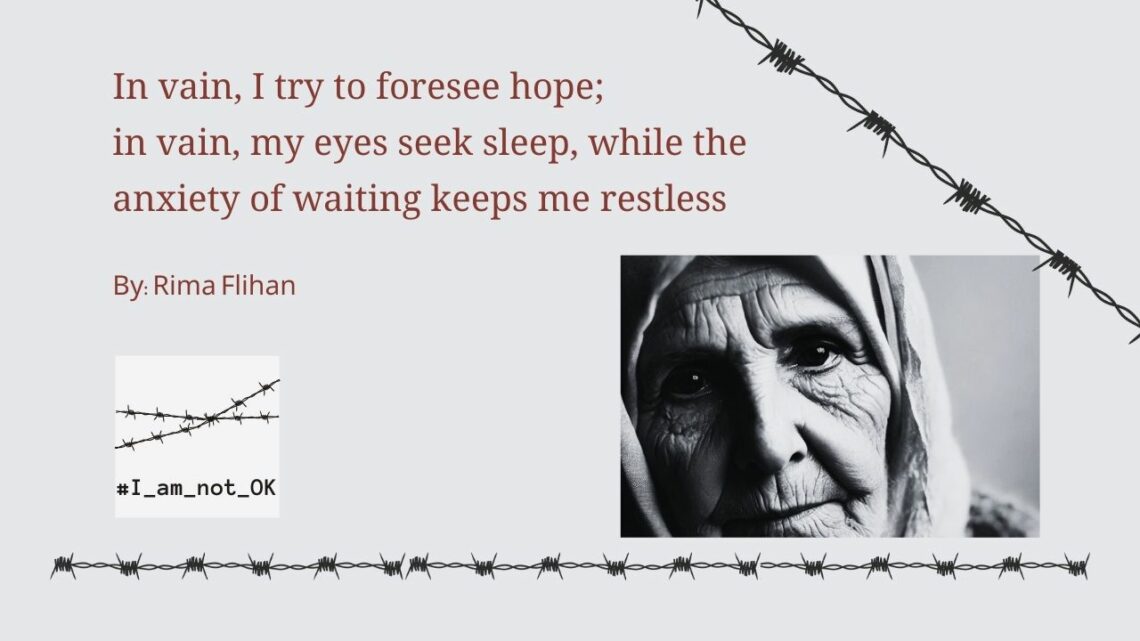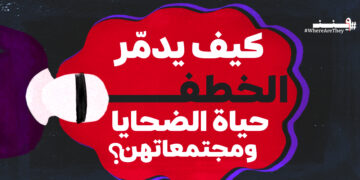By: Rima Flihan
In vain, I try to foresee hope;
in vain, my eyes seek sleep, while the anxiety of waiting keeps me restless.
Every morning, I pick up my phone, reading headlines and the details of news from our war-cursed East—a region cursed with fear, destruction, and death. I try to avoid opening videos; my energy and capacity to bear those images have been drained. Images coated with the dust of rubble, crowded with hastily shrouded tiny corpses. These images from Syria have not ceased for thirteen years and have been repeated in similar tones from Lebanon, Palestine, Sudan, and every place ravaged by wars and conflicts.
As we think of the “16 Days of Activism Against Gender-Based Violence” campaign, I am reminded that we are not okay and that women in wounded nations not only share the suffering with everyone but also pay double the price due to their gender. Being women in patriarchal societies and discriminatory states, they face grave violations in wars and are weaponized in conflicts.
Yes, I am not okay… a wound in my humanity pains me.
Personally, I might feel ashamed to admit I’m not okay—because I survived. How audacious of me… How can I complain about my state in the face of the immense suffering people in my homeland endure, especially women? Syrian women endure hunger, oppression, and humiliation within what’s left of the country, or under the canvas roofs of tents in nations that reject them. These nations say: “Leave, die, scatter… your plight is enough for us to bear.” This East tightens its grip on its inhabitants.
It’s as if the earth can no longer bear us… as if death is the only thing always ready to welcome anyone carrying the nationality of these lands—no visas or complications needed. For you, women of these lands, there is death, and only death.
Chaos devours the soul of the country, leaving criminals of different names in control. Women are detained, abducted, tortured, and coldly murdered. Children are arrested, loved ones are disappeared, and women are left as prey to societal violence, exploitation, and destitution.
Women in my country, those who lost loved ones, were forcibly displaced from their homes, stood in courtrooms to reclaim their plundered rights, or in civil registry offices to obtain a certificate—seeking an answer to a question haunting them since their loved ones were detained: Is he still alive?
What is my status today? A wife? A widow? A grieving mother? A daughter? An orphan? Or clinging to hope…
We are not okay: No one asked the women displaced by the green buses if they wanted to leave. They were uprooted from their homes, places, and memories. They are not okay when Yazidi women were sold in ISIS slave markets, or when Afrini women were forcibly displaced from their homes and history.
They are not okay: Women with disabilities lack humanitarian, social, legal, psychological, and institutional support, and they face domestic violence and discrimination. They are not okay when deprived of property and inheritance, when facing so-called “honor killings,” or enduring daily and momentary domestic violence.
The world decided to call displaced women survivors, and civil and human rights organizations concurred. Yet these women may not feel they have survived. Inside their hearts, they carry terrifying memories from a country ruled by violence.
This violence pursues them, even in exile, like an oppressive shadow under a scorching sun—a shadow of past traumas and a reality often not free of domestic violence for many, even in countries whose laws protect victims of violence, but where support and access are limited.
As exiles, we carry the pains of our homeland in our very cells every day. We may have left those lands, but those lands have never left us. We witness departure daily, living it in various forms, then bid farewell to relatives and friends, one after the other, as they pass—without even being able to embrace them one last time. The regime’s violence, repression, and diverse punishments awaiting us prevent our return to a homeland where we have rights and which has rights over us.
Yes… I am not okay because the women of my country are not okay.
I am not okay because our dreams die daily on the breaking news ticker.
I am not okay because the world abandoned us when we believed—and still believe—that humanity transcends all else.




